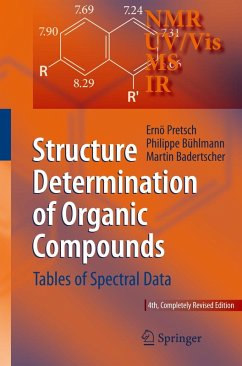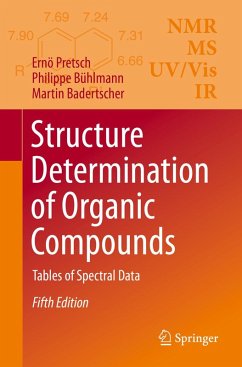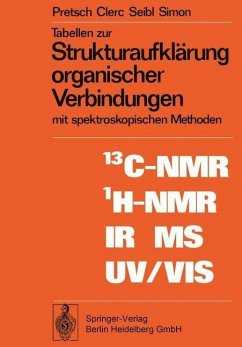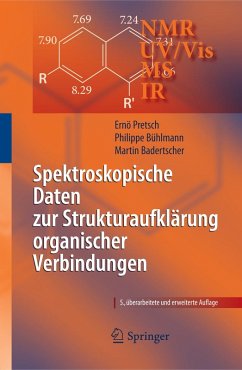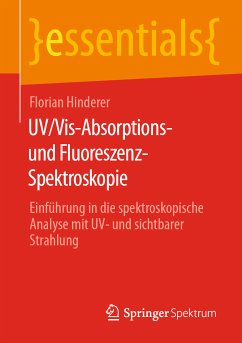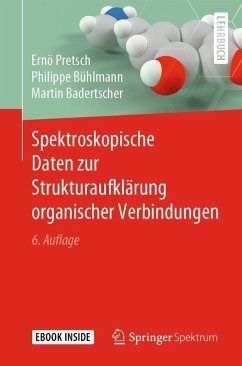
Tables of Spectral Data for Structure Determination of Organic Compounds (eBook, PDF)
Versandkostenfrei!
Sofort per Download lieferbar
64,95 €
inkl. MwSt.

PAYBACK Punkte
32 °P sammeln!
Although numerical data are, in principle, universal, the compilations presented in this book are extensively annotated and interleaved with text. This translation of the second German edition has been prepared to facilitate the use of this work, with all its valuable detail, by the large community of English-speaking scientists. Translation has also provided an opportunity to correct and revise the text, and to update the nomenclature. Fortunately, spectroscopic data and their relationship with structure do not change much with time so one can predict that this book will, for a long period of...
Although numerical data are, in principle, universal, the compilations presented in this book are extensively annotated and interleaved with text. This translation of the second German edition has been prepared to facilitate the use of this work, with all its valuable detail, by the large community of English-speaking scientists. Translation has also provided an opportunity to correct and revise the text, and to update the nomenclature. Fortunately, spectroscopic data and their relationship with structure do not change much with time so one can predict that this book will, for a long period of time, continue to be very useful to organic chemists involved in the identification of organic compounds or the elucidation of their structure. Klaus Biemann Cambridge, MA, April 1983 Preface to the First German Edition Making use of the information provided by various spectroscopic tech niques has become a ·matter of routine for the analytically oriented organic chemist. Those who have graduated recently received extensive training in these techniques as part of the curriculum while their older colleagues learned to use these methods by necessity. One can, therefore, assume that chemists are well versed in the proper choice of the methods suitable for the solution of a particular problem and to translate the experimental data into structural information.
Dieser Download kann aus rechtlichen Gründen nur mit Rechnungsadresse in A, B, BG, CY, CZ, D, DK, EW, E, FIN, F, GR, HR, H, IRL, I, LT, L, LR, M, NL, PL, P, R, S, SLO, SK ausgeliefert werden.



